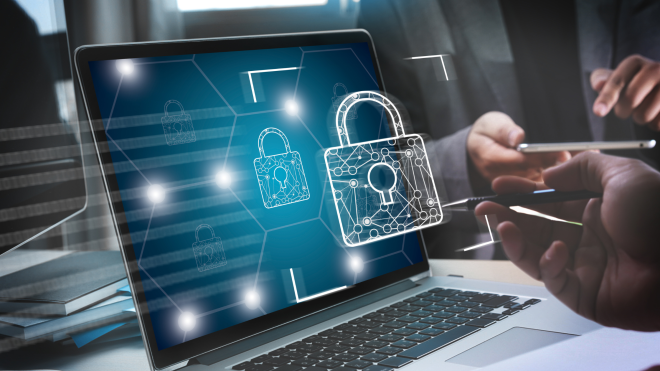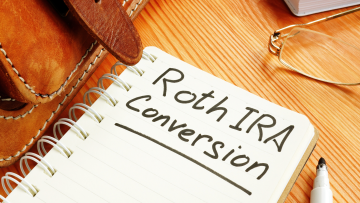As we navigate an increasingly digital world, protecting your financial data has become more important than ever. For those approaching or already in retirement, securing your personal and financial information is critical not only for helping preserve your wealth but also for avoiding potential threats from cybercriminals.
As affluent retirees, you are prime targets for identity theft, fraud, and other cybercrimes. Understanding the evolving threats and taking proactive steps to protect your financial data will help ensure a more secure, worry-free future.
Here’s what you need to know.
Why Financial Data Protection Matters
The risks of financial fraud are all too real, especially for seniors. Here’s why safeguarding your financial information is paramount:
- Identity Theft Risks: Once cybercriminals gain access to your personal data, they can easily open fraudulent accounts, take out loans, or even raid your retirement savings.
- Increased Vulnerability of Retirees: Seniors are often targeted because they may have accumulated substantial savings, rely on digital banking, and may not be familiar with the latest cybersecurity threats. Cybercriminals often exploit these vulnerabilities.
- The Rising Costs of Data Breaches: The cost of a data breach continues to rise, with the global average reaching $4.88 million in 2024—an alarming 10% increase from the previous year.
- Healthcare Sector Vulnerabilities: Since healthcare data is often linked to financial details, breaches in this sector are particularly concerning. In 2024, the overall average cost of a healthcare breach was $9.77 million.
Practical Steps to Safeguard Your Financial Data
1. Strengthen Passwords and Use Multi-Factor Authentication (MFA)
Creating complex passwords and using multi-factor authentication can help secure your online accounts.
- Create Complex Passwords: Use a mix of letters, numbers, and symbols, avoiding easily guessable information like birthdays.
- Update Regularly: Changing your passwords periodically can also help minimize the risk of unauthorized access.
- Enable MFA: Multi-factor authentication can help add an extra layer of security by requiring a secondary verification step, making it harder for criminals to breach your accounts.
2. Be Vigilant with Communications
Scammers frequently attempt to trick individuals into divulging personal information. Here’s how to stay alert:
- Recognize Phishing Attempts: Avoid unsolicited emails, phone calls, or texts that ask for personal or financial details. Scammers often pose as legitimate institutions to collect sensitive data.
- Verify Sources: Always verify the identity of anyone claiming to be from a financial institution by using official contact channels.
3. Secure Personal Documents
Both physical and digital documents should be stored securely to help prevent unauthorized access.
- Physical Records: Keep sensitive documents, like bank statements and tax records, in a locked drawer or safe.
- Digitize When Possible: Store encrypted digital copies of important documents to help safeguard against physical theft.
4. Monitor Financial Accounts Regularly
Staying on top of your accounts can be key to early fraud detection.
- Review Statements: Regularly check your bank and credit card statements for suspicious activity. Early detection is critical for helping prevent further damage.
- Set Up Alerts: Most financial institutions offer alert services to notify you of unusual activity in your accounts.
5. Educate Yourself and Stay Informed
Knowledge is power when it comes to avoiding scams.
- Participate in Educational Programs: CKS Summit Group offers a variety of educational content that may help you prevent fraud.
- Stay Updated on Scams: Regularly check trustworthy sources to keep informed about new scams targeting seniors.
6. Exercise Caution with Investments
Scam artists often target seniors with promises of high returns with little risk.
- Beware of “Too Good to Be True” Opportunities: Always be cautious about unsolicited investment offers that sound too good to be true.
- Consult Trusted Professionals: Before making any significant financial decisions, consult an advisor to help ensure the soundness of your investments.
7. Utilize Bank Security Features
Your bank can be a critical partner in helping protect your financial data.
- Explore Available Protections: Work with your bank to implement security measures such as fraud alerts, encryption, and account monitoring.
- Keep Contact Information Updated: Ensure your financial institutions have your current contact details so they can alert you promptly if suspicious activity occurs.
8. Plan for Diminished Capacity
As you age, it’s important to have measures in place for potential incapacity.
- Appoint a Trusted Contact: Designate someone you trust to make financial decisions on your behalf if necessary.
- Establish Legal Safeguards: If you cannot manage your financial interests, set up powers of attorney and other legal tools to help protect them.
How CKS Summit Group Can Help
At CKS Summit Group, we understand that protecting your financial future goes beyond wealth management. It’s about helping ensure that your data and assets are safeguarded from risks.
Your retirement should be a time of enjoyment, not worrying about potential financial threats. With CKS Summit Group by your side, you can rest easy knowing you’re in safe hands.
Final Thoughts
Taking proactive steps to protect your financial data can help you secure your financial future. Stay vigilant, stay informed, and work with trusted professionals to help guard your personal and financial information.
If you need help protecting your wealth as you plan for retirement, CKS Summit Group is here to provide the support you need.
Schedule a complimentary consultation.
FAQs About Cybersecurity
- How can I identify phishing attempts and avoid falling for them?
Phishing attempts are typically disguised as legitimate communications. Look out for suspicious emails, phone calls, or texts that ask for personal information. Always verify the source by contacting institutions directly using official contact details, and be cautious if something seems too urgent or too good to be true.
- What should I do if I think my financial data has been compromised?
If you suspect your data has been compromised, immediately report it to your bank, credit card company, and other financial institutions. Change your passwords, enable multi-factor authentication, and monitor your accounts closely for any unauthorized transactions. You may also want to file a report with the Federal Trade Commission (FTC) and the credit bureaus.
- What are the most common cybersecurity threats targeting retirees?
Scams like identity theft, phishing, and fraudulent investment schemes often target retirees. Cybercriminals know that many seniors may have accumulated significant savings and may not be familiar with the latest cybersecurity risks, making them prime targets.
- How can I help protect both my physical and digital financial records?
Store sensitive physical documents, such as tax records and bank statements, in a locked drawer or safe. For digital records, use encrypted storage and regularly back up important files. Be mindful of sharing sensitive information online and ensure your devices are secure.
- How can I prepare for potential cognitive decline affecting my financial decisions?
Consider appointing a trusted contact who can make financial decisions on your behalf if necessary. Establish legal safeguards, such as powers of attorney and living wills, to help protect your financial interests if you can no longer manage them yourself.
Disclaimer: The information provided in this blog is for educational purposes only and should not be construed as specific investment advice. Always consult with a qualified financial advisor before making any investment decisions.



